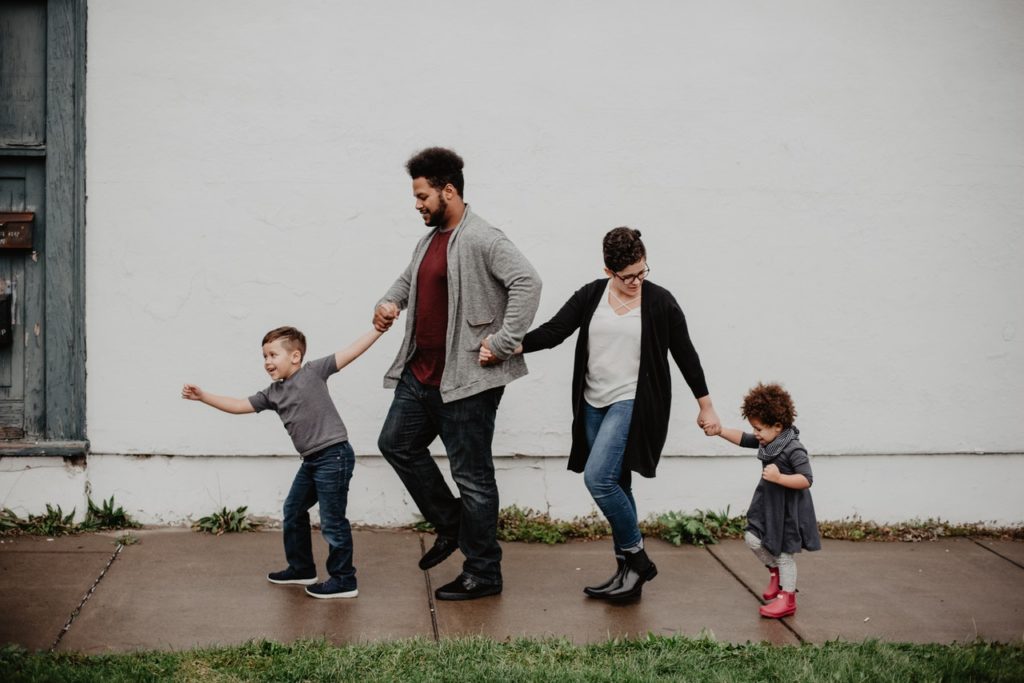Many people are afraid of becoming parents. They fear they will not be able to live up to the task. It’s true. Being a parent is difficult. However, generations upon generations of people have been successful at it. If they hadn’t, we wouldn’t exist.
Even though there is no blueprint, history has provided us with hints on how to do it. They include preventive care, getting over disappointment, and showing the right example.
Prevention Is the Best Medicine
One of the most important aspects of being a good parent is giving your children the right tools for the future. It is about teaching them subjects and survival skills and making sure they have as few speed-bumps as possible.
A simple example is instructing them on how to stay healthy rather than dealing with sickness. Another one is giving them financial knowledge, so they can save money instead of having to borrow it.
Other preventive actions new parents can take include:
- Laying the foundation for internal health. Parents should teach kids about food, nutrition, and regular exercise. It is their responsibility to guarantee they don’t grow up with preventable diseases like type II diabetes, hypertension, and obesity.
- Dealing with external ailments. If your child suffers from a walking abnormality, deal with it as soon as you can. Don’t wait until he grows older and struggles in a physical education class. If he has bad teeth, take him to the dentist. Better yet, look into an orthodontics treatment or buy a LED whitening mouthpiece. It’s not about vanity. It’s about looking the most presentable in a meeting or future job interview.
- Eliminating bad habits. A lot of children like to bite their nails or suck on their thumbs. If your daughter is one of them, take measures to drop this before it becomes ingrained in her brain.
- Helping children gain confidence. If your children are confident in life, they will have a much greater possibility of success. So praise them, value their efforts, instill in them the knowledge that they are worthy, that they are good enough no matter what they do.
By being mindful of prevention, your children will grow up to lead happier, healthier lives.

Dealing with Failure
Everybody fails at one point or another in their lives. Some people argue Thomas Edison failed 1,000 times before he succeeded with the light bulb. Others say it was 10,000. No matter what the real number was, he failed a lot. Michael Jordan was dismissed from his high school basketball team. Steve Jobs was removed from the company he created.
Constant failure is a part of life, perhaps the biggest one. Thus, children should learn how to deal with it at a young age. They should understand that things don’t come easy. But that doesn’t mean you have to give up.
If your son falls from his bike, wait for a few seconds before you run to pick him up. Let him try to soothe himself, gain inner strength, and learn resilience. Of course, if he has a broken bone, rush him to the hospital. The intention is not for kids to suffer without reason.
The little stones blocking our path in our childhood provide the framework for breaking the giant walls we will face as adults.
Leading by Example
Some behavioral scientists and family sociologists believe behavior is learned through interaction with others. Other experts think it is inherited, passed on from generation to generation. Whether it’s A or B doesn’t matter, it still relates to you as a parent. If behavior is learned, and your kids see you are hardworking, they will also work hard. If it’s genetic, then it also comes from you, albeit indirectly.
Instead of trying to figure out whether your kids act the way they do because of your influence or your DNA, why not guide them to do things the right way? Why not teach them discipline by being disciplined yourself?
Leading by example includes all aspects of your life, from how you clean your bedroom to how you interact with others, run errands, do chores, and take care of yourself. Kids will, many times, not say anything. But that doesn’t mean they can’t see and pick up whatever it is those around them are doing.
Raising a good person is the biggest challenge a parent can face. There are no rules set in stone, no method that works for everybody. Most parents have to play it by ear, adapting as they go and making changes on the fly.
Still, there are certain measures you can take. You can be proactive in preventing bad things from happening. You can also teach kids about failure and lead by example.
Even though this might not guarantee anything, it’ll still provide your children with valuable tools to maneuver the many twists and turns of life.



















